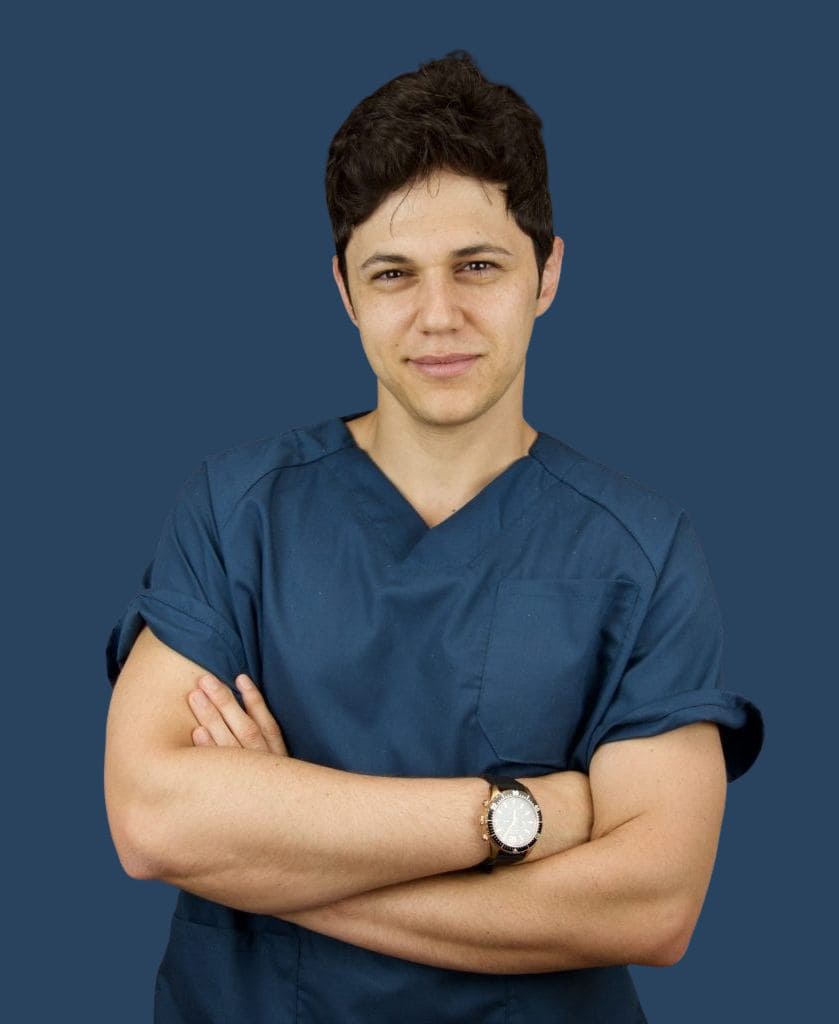Clinica dental en zaragoza
Clínica Dental
Cardona
En nuestra clínica dental en Zaragoza nos comprometemos a ofrecerle una sonrisa saludable y radiante.
Nuestro equipo de dentistas y ortodoncistas combina tecnología de vanguardia con un enfoque personalizado para cada paciente.
Dentista en Zaragoza
CLÍNICA DR.CARDONA
En nuestra clínica dental en Zaragoza tenemos una misión clara: Ofrecerte un servicio dental personalizado y exclusivo. Contamos con un equipo de dentistas especializado en diferentes áreas de la odontología, con el objetivo de brindarte los mejores tratamientos basados en la atención personalizada y la honestidad.
Somos una clínica dental diferente, comprometidos con la formación continua a la vanguardia de los tratamientos odontológicos de vanguardia.
Nuestro objetivo es que te sientas como en casa, mejorando tu salud y estética bucal al mismo tiempo.
Contamos con la última tecnología para ofrecerte un lugar agradable y cómodo donde realizar cualquier proceso odontológico que necesites.
¿Qué dicen nuestros clientes?
¿Somos los mejores dentistas de Zaragoza? Eso es algo que preferimos que juzguen nuestros pacientes. Lo que sí es seguro es que contamos con equipos tecnológicos de vanguardia y con un equipo de dentistas con una amplia y reconocida experiencia, lo cual nos sitúa entre las clínicas dentales más destacadas de Zaragoza.
TRATAMIENTOS DENTALES EN ZARAGOZA:

Ortodoncia
Sonríe con confianza gracias a nuestros tratamientos de ortodoncia personalizados y de alta calidad.

Implantes dentales
Recupera tu sonrisa y funcionalidad con implantes dentales seguros y de última tecnología.

Estética
dental
Diseñamos sonrisas deslumbrantes con procedimientos de estética dental avanzados y personalizados

Endodoncia
Salvamos tu diente y eliminamos el dolor mediante tratamientos de endodoncia efectivos y cuidadosos.

Odontopediatría
Sonrisas infantiles saludables y felices comienzan con nuestros cuidados expertos en odontopediatría

Periodoncia
Protege tus encías y asegura la salud de tu boca con nuestros tratamientos de periodoncia
Mejor dentista de Zaragoza
¿Por qué
Clínica
Cardona?
La Clínica Cardona ha sido reconocida en numerosos medios de comunicación como una de las clínicas dentales más creativas, innovadores y revolucionarias en el ámbito de la salud bucodental en Zaragoza.
En la Clínica Dental David Cardona ofrecemos un servicio especializado en mejorar la sonrisa de nuestros pacientes con la tecnología más avanzada.
- Profesionales de Confianza:
- Tecnología de Vanguardia
- Atención Personalizada
- Primera Visita gratuita
- Ambiente Cálido y Cómodo
- Resultados Visibles
- Transparencia en Costes
- Diseño Digital de Sonrisa (DSD)

- Lunes : 09:00 - 13:00 | 16:00 - 20:00
- Martes : 09:00 - 13:00 | 15:30 - 19:30
- Miércoles : 09:00 - 13:00 | 16:00 - 20:00
- Jueves : 09:00 - 13:00 | 16:00 - 20:00
- Viernes : 09:00 - 13:00 | 15:30 - 19:30

Correo
info@clinicacardona.com

Ubicación
Calle San Vicente Mártir, 17, 50008, Zaragoza
Calle San Jorge, Nº20, 50660 Tauste, Zaragoza

Teléfono
+34 722 304 781
+34 876 436 409
TECNOLOGÍA CAD / CAM
En nuestra clínica dental en Zaragoza, nos esforzamos por utilizar siempre el equipamiento tecnológico más actual y vanguardista.
Es por eso que utilizamos el software CAD/CAM, que significa «Diseño asistido por computadora» y «Fabricación asistida por computadora».
Este programa exclusivo nos permite diseñar y fabricar prototipos, productos terminados y procesos de producción, como en prótesis dentales.
Dentistas Profesionales y Tecnología Innovadora
Odontología avanzada, donde la tecnología de vanguardia y dentistas expertos garantizan sonrisas impecables y saludables
PRIMERA VISITA DENTAL GRATUITA
La primera en clínica Cardona es 100% gratuita, estudio odontológico completo sin coste.
DISEÑO DE SONRISA
Tecnología DSD que permite ver el resultado final de tu tratamiento antes de comenzar
SEDACIÓN CONSCIENTE
Programa de sedación consciente está diseñado para ofrecerte una experiencia indolora
MEJORES MARCAS Y MATERIALES DENTALES
En la clínica dental David Cardona, siempre elegimos las mejores marcas del mercado para brindar a nuestros pacientes los resultados más satisfactorios en sus tratamientos.
Una de las marcas que consideramos es Straumann, ya que sus implantes dentales cuentan con una amplia base de investigación científica que respalda la solidez de la empresa y la efectividad de sus productos.
Además, la tasa de éxito de los implantes de Straumann es del 99%.


Un nuevo concepto de clínica odontologíca en Zaragoza
Contamos con el mejor equipo de odontologos en Zaragoza: Expertos en crear sonrisas perfectas con tecnología de vanguardia. Disfruta de nuestra ortodoncia invisible y tratamientos estéticos para conseguir la sonrisa que siempre has deseado.
Desde tratamientos de odontología general hasta servicios especializados como bruxismo y halitosis. Nuestro compromiso es tu bienestar y satisfacción. Acércate a la mejor atención dental en Zaragoza, donde tu sonrisa es nuestra mayor motivación

